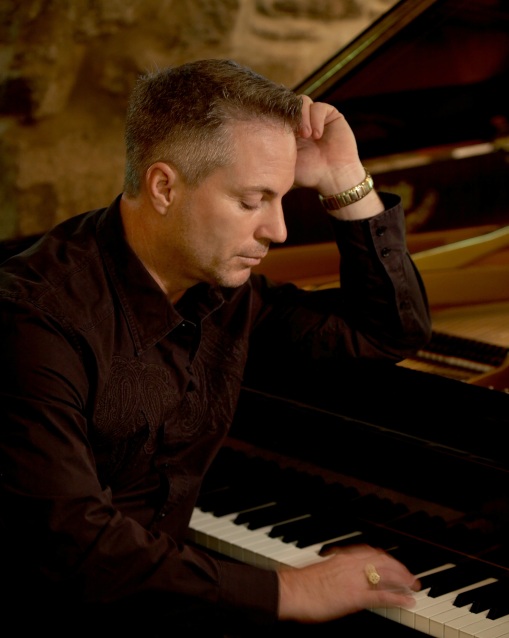Julie Nesrallah will stun you with her soaring operatic voice; her singing is ethereal, dramatic, and transcendent. Even untrained ears will be hard to resist the emotional pull of this magnificent mezzo-soprano.
Julian Wilson: You don’t look like an opera singer or a classical musician at all. There seems to be a sort of stuffiness when it comes to the look of artists who work within those genres. Have you faced any criticism from peers because of your stylish appearance?

Julie Nesrallah: I have not received any criticism from peers whatsoever and I love the fact that I look very contrary to what people expect from an opera singer. I intend to continue to smash pre-conceived notions of what is it to be an opera singer in this day and age. Besides, the face of opera is changing. It’s becoming sexier, more hip and very “red carpet” in an attempt to win new audiences.
Wilson: How did you become interested in classical music and opera? What triggered this passion?
Nesrallah: From a very young age, I knew I wanted to be a performer. When I was 10, my parents bought me a piano. The guy who delivered it sat down to play, and I went totally berserk. That’s when I knew I had to learn how to do that, too, and my classical flame was ignited. I started off as a pianist, but I sang in the school choir and was given lead singing roles in school productions, and eventually the singing took over. When I was 12, I was in the children’s chorus of my first professional opera, and after that I started private voice lessons. I never knew anything else existed. Becoming a classical musician was an obvious and natural evolution that took over my life. I completed two degrees in music, was launched into the professional world right out of university, and the rest is history. Although some of my family members are very musical, I was the only one who pursued it as a career. It wasn’t like I grew up in an upper-class household with a butler, and Haydn and Mozart playing in the background during tea time. I had a normal childhood; I was a regular kid who happened to have a big, strong voice and couldn’t live without singing. And classical singing (as opposed to musical theatre or pop) is not only what turned me on the most, but it was the thing I did best.
Wilson: Opera and classical music are generally considered by kids to be boring and something that only old people would listen to. How do we get a younger generation with very short attention spans into this music?
Nesrallah: The last thing in the world I would call opera is boring. The whole event is a feast for the senses: it’s opulent, decadent, fantastic, incredible, it spans the range of human emotion and experience — on and off stage! And what people don’t realize about opera is that most of the big hits (Carmen, The Marriage of Figaro, La Bohème, Tosca, La Traviata) are truly compelling human dramas, and that the characters being portrayed in those dramas are portraits of regular people trying to make their way in the world. That’s why these stories and this art form have endured for so long: they are about you and me and everything in between. Opera is a super-human expression of the most elemental human experiences.
When you are able to successfully engage people, you are not boring them. The trick is knowing how get them hooked, and the only way to do that is to have someone present this music to them in a way that they can relate and respond to. For me, opera and rock & roll aren’t so different in terms what they provide as musical nourishment to the listener, and I enjoy conveying this idea to people. I am absolutely convinced that I would be able to turn people on to this genre given the right platform. It has been my lifelong mission to try and break down those barriers by approaching it in a very down-to-Earth way, in a way that people don’t usually expect from a classical musician.
Wilson: Do you consider yourself a rebel?
Nesrallah: If being a rebel means maintaining a very pure sense of self, regardless of what is expected of you, regardless of what the rest of the gang is doing and regardless of what you might lose in the process, then my answer is yes. I always did exactly what my intincts screamed loudest for me to do, for better or for worse. I have never taken the safe path in life or on stage. One Canadian reviewer and critic called me “opera’s wild child,” and I have to admit I loved it. Look at it this way, I am a Canadian opera singer answering questions for an American hipster indie site, and I think that speaks volumes.
Wilson: You’re based in Canada. Is there a real appreciation for this kind of music over there?
Nesrallah: There is a real appreciation for this kind of music in Canada and in the United States. There are hundreds of opera companies all over North America, and the market is flooded with opera singers. What opera needs is a bigger fan base in an effort to help keep opera alive and vital and forward moving. I know that there are thousands of innocent and unsuspecting rockers out there just waiting to be bitten by the opera bug, and I look forward to trying to infect them all. It is so worth it and such an interesting and unique genre. All people need to do is give it a chance.
http://www.julienesrallah.com




